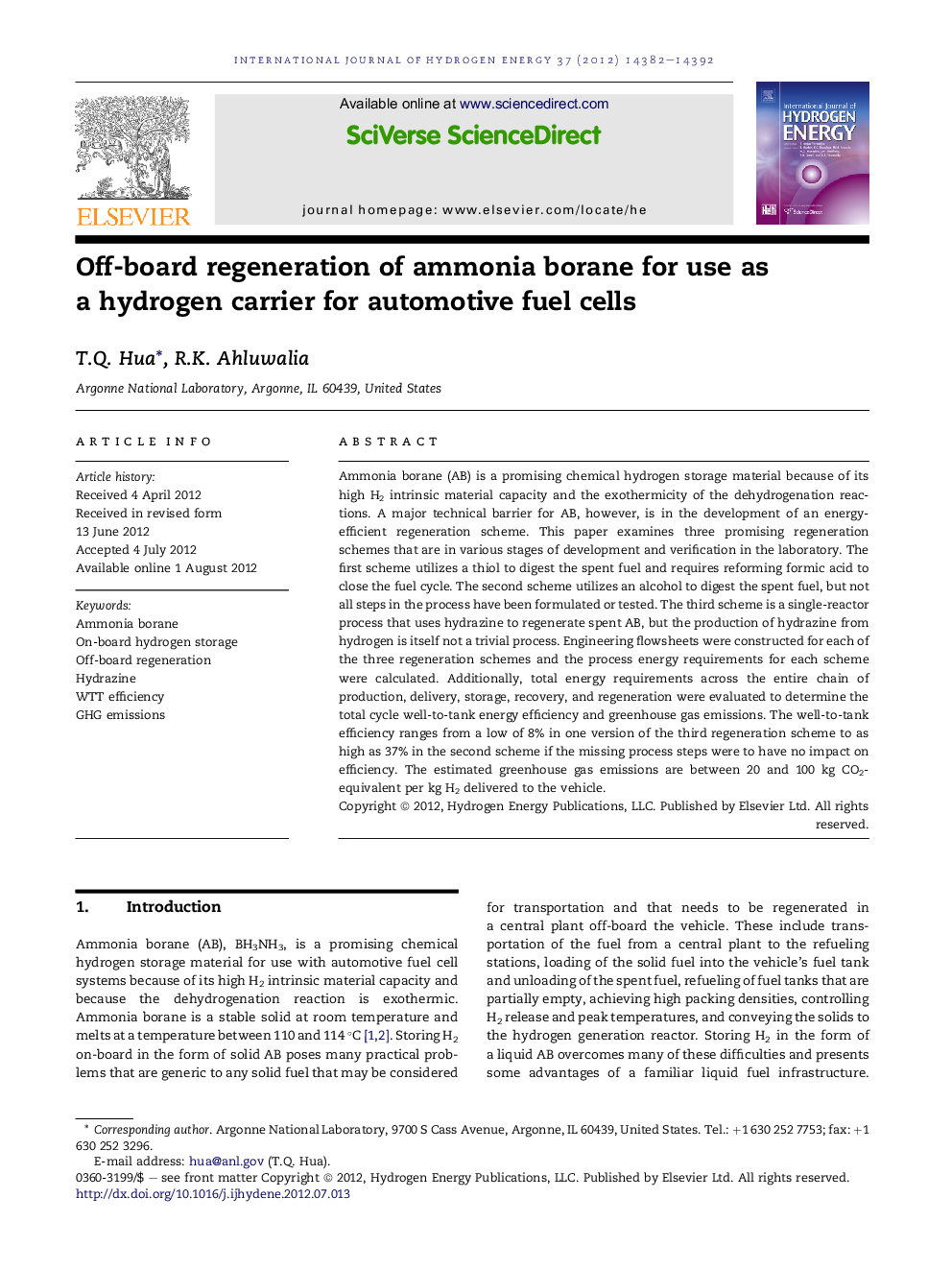| Article ID | Journal | Published Year | Pages | File Type |
|---|---|---|---|---|
| 1274786 | International Journal of Hydrogen Energy | 2012 | 11 Pages |
Ammonia borane (AB) is a promising chemical hydrogen storage material because of its high H2 intrinsic material capacity and the exothermicity of the dehydrogenation reactions. A major technical barrier for AB, however, is in the development of an energy-efficient regeneration scheme. This paper examines three promising regeneration schemes that are in various stages of development and verification in the laboratory. The first scheme utilizes a thiol to digest the spent fuel and requires reforming formic acid to close the fuel cycle. The second scheme utilizes an alcohol to digest the spent fuel, but not all steps in the process have been formulated or tested. The third scheme is a single-reactor process that uses hydrazine to regenerate spent AB, but the production of hydrazine from hydrogen is itself not a trivial process. Engineering flowsheets were constructed for each of the three regeneration schemes and the process energy requirements for each scheme were calculated. Additionally, total energy requirements across the entire chain of production, delivery, storage, recovery, and regeneration were evaluated to determine the total cycle well-to-tank energy efficiency and greenhouse gas emissions. The well-to-tank efficiency ranges from a low of 8% in one version of the third regeneration scheme to as high as 37% in the second scheme if the missing process steps were to have no impact on efficiency. The estimated greenhouse gas emissions are between 20 and 100 kg CO2-equivalent per kg H2 delivered to the vehicle.
► On-board hydrogen storage using ammonia borane in ionic liquid. ► Off-board regeneration by one of three schemes: thiol-based, alcohol-based, hydrazine-based. ► Engineering flowsheets were constructed to assess the overall WTT efficiency. ► Sensitivity analysis of WTT efficiency. ► Database in GREET was used to calculate life-cycle greenhouse gas emissions.
